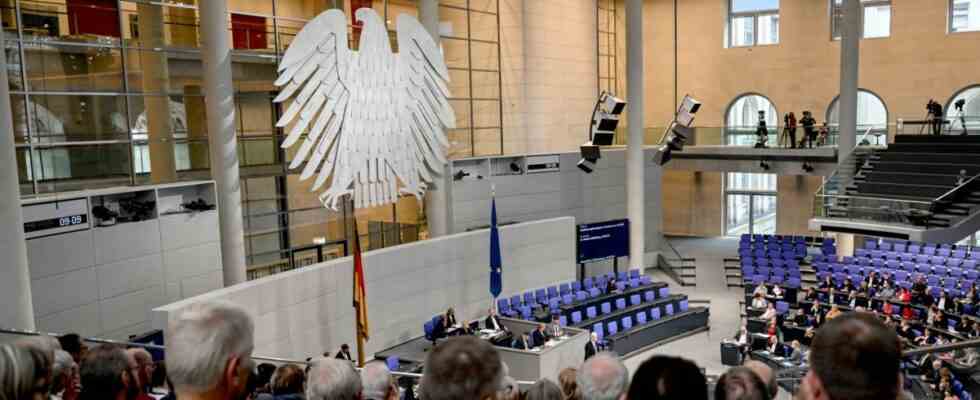If the federal government were not the federal government, but a simple citizen, as the CSU politician Florian Oßner pointed out in the Bundestag on Friday, the bank would have blocked all her accounts long ago. One cannot explain to anyone why the coalition wants to take out 200 billion euros in loans to support citizens and companies in the energy crisis without being able to say exactly how the money is to be spent. The SPD, Greens and FDP, Oßner’s CDU comrade-in-arms Mathias Middelberg assisted, wanted “a money bag that they put in the basement” from parliament so that they could reach in if necessary.
This set the tone for the parliamentary debate on the protective shield with which the government wants to protect citizens and the economy from the worst excesses of the energy crisis. The opposition factions also saw the need for a gas and electricity price brake as well as help for companies.
However, they did not want to take part in the traffic light plans: the Union, because the government cannot yet quantify the costs of the individual measures, but wants to reactivate the Economic Stabilization Fund (WSF) from the Corona times and fill it with 200 billion euros; the left, because from their point of view the socially weakest are once again the shambles; and the AfD, because they don’t want to shake hands with the “most stupid energy policy in the world”. In the end, however, the protective shield was decided with the votes of the coalition.
According to the draft law, the WSF is to be provided with loans this year, which can then be used to finance aid in 2023 and 2024. Part of the money is supposed to come in again by skimming off “chance profits” from the energy industry.
The Union considers the traffic light procedure to be “nonsense”
In the Bundestag debate, CDU member Middelberg accused the government of having “wasted the whole summer on internal disputes” instead of working out the details of the gas and electricity price brakes. The result is now that Parliament is asking for money for a concept that doesn’t even exist yet. “It’s bullshit what they’re doing,” he said.
The budget spokesman for the FDP parliamentary group, Otto Fricke, replied that with the WSF law, the coalition is making good on its promise not to leave citizens and companies alone in the crisis caused by Russia. It is also right to bundle the resources in a special pot instead of in the regular budget, because this ensures that sufficient money is available at all times, even beyond the budget year. SPD general secretary Kevin Kühnert criticized the fact that the Union faction was refusing a law that the prime ministers of the CDU and CSU supported in unison.
As far as contradictions are concerned, it is also worth taking a look at the Bundestag archives, because there had already been an almost identical debate to that on Friday: at the beginning of the pandemic in March 2020, when the WSF was created and endowed with 600 billion euros. Even at the time – the Union and the SPD were still in power – it was not clear during the deliberations when and for what exactly the money would be used. Nevertheless, a leading coalition politician warned the opposition not to refuse. “The worst thing you can do in a crisis is duck and do nothing,” he said. Nobody knows whether what is now being decided is right, because this is all happening for the first time. “But that’s exactly what political leadership is, ladies and gentlemen: having the courage to make decisions and having the courage to make mistakes, because that’s better than doing nothing now.” The speaker was Ralph Brinkhaus, CDU/CSU, leader of the parliamentary group at the time.

